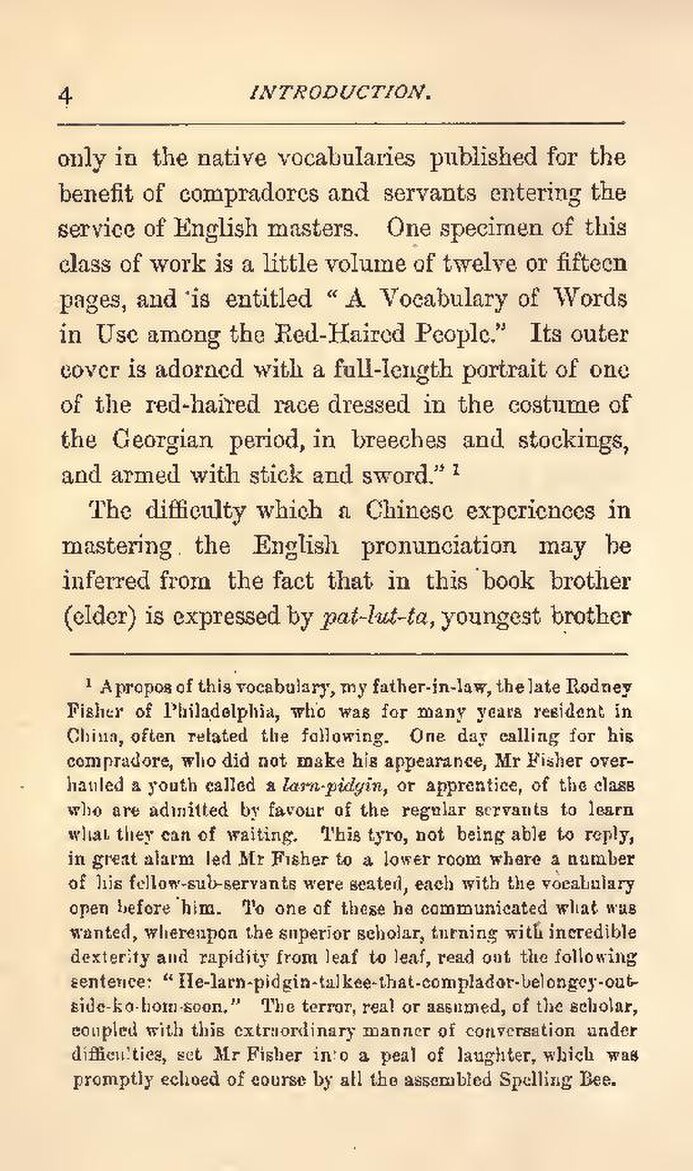This page needs to be proofread.
only in the native vocabularies published for the benefit of compradores and servants entering the service of English masters. One specimen of this class of work is a little volume of twelve or fifteen pages, and is entitled "A Vocabulary of Words in Use among the Red-Haired People." Its outer cover is adorned with a full-length portrait of one of the red-haired race dressed in the costume of the Georgian period, in breeches and stockings, and armed with stick and sword."[1]
The difficulty which a Chinese experiences in mastering the English pronunciation pronunciation may be inferred from the fact that in this book brother (elder) is expressed by pat-lut-ta, youngest brother
- ↑ A propos of this vocabulary, my father-in-law, the late Rodney Fisher of Philadelphia, who was for many years resident in China, often related the following. One day calling for his compradore, who did not make his appearance, Mr Fisher over-hauled a youth called a larn-pidgin, or apprentice, of the class who are admitted by favour of the regular servants to learn what they can of waiting. This tyro, not being able to reply, in great alarm led Mr Fisher to a lower room where a number of his fellow-sub-servants were seated, each with the vocabulary open before him. To one of these he communicated what was wanted, whereupon the superior scholar, turning with incredible dexterity and rapidity from leaf to leaf, read out the following sentence: "He-larn-pidgin-talkee-that-complador-belongey-out-side-ko-hom-soon." The terror, real or assumed, of the scholar, coupled with this extraordinary manner of conversation under difficulties, set Mr Fisher into a peal of laughter, which was promptly echoed of course by all the assembled Spelling Bee.
